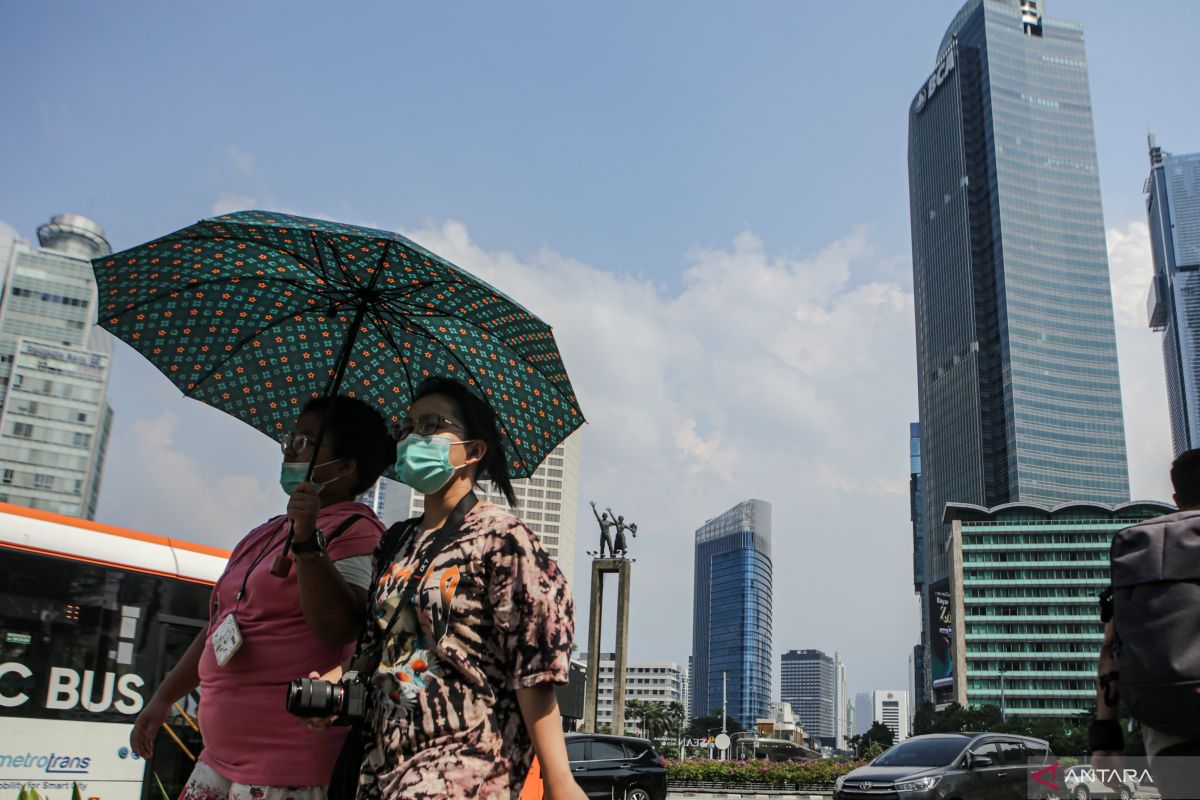
BMKG predicts global warming, climate change to continue in 2024

Jakarta (ANTARA) - Meteorology, Climatology, and Geophysics Agency's (BMKG's) Deputy for Climatology, Ardhasena Sopaheluwakan, stated that global warming and climate change are expected to continue due to increasing greenhouse gas emissions amid various efforts made to suppress them.
"Global warming reached a new record in 2023, surpassing the 2016 record. In 2024, the condition is expected to be hotter," Sopaheluwakan remarked on Saturday.
According to Sopaheluwakan, the combination of El Nino and climate change triggered an increase in temperatures in the second half of 2023.
He remarked that the average annual global temperature in 2023 was around 1.45 ± 0.12 degrees Celsius warmer than pre-industrial levels.
"Nowadays, the world is getting closer to the limits set in the Paris Agreement," he stated while referring to the limits of temperature increase.
The Paris Agreement, which has been adopted by nearly 200 countries, is targeted to keep global average temperature increases below two degrees Celsius above pre-industrial levels and limiting temperature increases to no more than 1.5 degrees Celsius above pre-industrial levels.
However, Sopaheluwakan quoted the World Meteorological Organization report which showed that in 2023, extreme heat conditions had impacted human health and triggered forest fires at various locations.
"Global warming and climate change are our shared responsibilities. We must make efforts to suppress it and reduce its impact," he emphasized.
In line with efforts to limit the increase in the average temperature of the earth's surface to below 1.5 degrees Celsius, the Indonesian government aims to reduce greenhouse gas emissions by 29 percent on its own and 41 percent with international support by 2030.
Efforts made to reduce greenhouse gas emissions include reducing the rate of deforestation and forest degradation, conducting sustainable forest management, carrying out forest rehabilitation, managing peatlands and mangroves, and increasing biodiversity conservation.
The government is also working to reduce the use of fossil fuels, increase the use of new and renewable energy, improve waste management, implement low-carbon agricultural systems, and reduce carbon emissions in the transportation sector.
Pewarta : Zubi Mahrofi, Resinta Sulistiyandari
Editor:
Edhy Susilo
COPYRIGHT © ANTARA 2026









